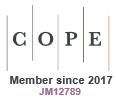Reproduction in natural populations of the Australian ringtail possum, Pseudocheirus peregrinus (Marsupialia: Phalangeridae) in Victora.
RL Hughes, JA Thomson and WH Owen
Australian Journal of Zoology
13(3) 383 - 406
Published: 1965
Abstract
Reproductive data from 83 female and 34 male ringtail possums, living in natural populations, have been accumulated over a 3-yr period (March 1960-May 1963). Reproductive tracts from 75 females killed during this period have been examined. Pseudocheirus is polyoestrous and breeds between the latter half of April and the end of November. The whole female reproductive tract and, in the male, the testes then undergo involution until the next breeding season. The majority of conceptions occur early in the breeding season when one to three eggs are shed and fertilized at one time. Supra-ovulation was not observed and the reproductive wastage was very low during pouch life. The mean litter size was two. It is exceptional for females to conceive a second time in one breeding season. Of the four teats, the posterior pair were selected by 85 % of the new-born young. The frequency of lactation in each posterior teat was approximately equal in 58 females. In advanced pregnancy (foetal head length, 6.5 mm) the subepithelial blood net of the uterine mucosa was more highly developed adjacent to a dorsal and ventral area of the vascular portion of the foetal yolksac. In these regions dense foetal blood vessel nets were formed by intense localized branching of the foetal vitelline veins on the yolksac. The foetal membrane, the allantois, was surprisingly large (8 mm diam.), and although not attached to the chorion possessed a conspicuous blood net in its base. An account of the histology of the ovary and reproductive tract includes the following reproductive conditions : juvenile, oestrus, early and late pregnancy, lactation, and anoestrus. Reproduction in Pseudocheirus is briefly compared to that of other marsupial species.https://doi.org/10.1071/ZO9650383
© CSIRO 1965


